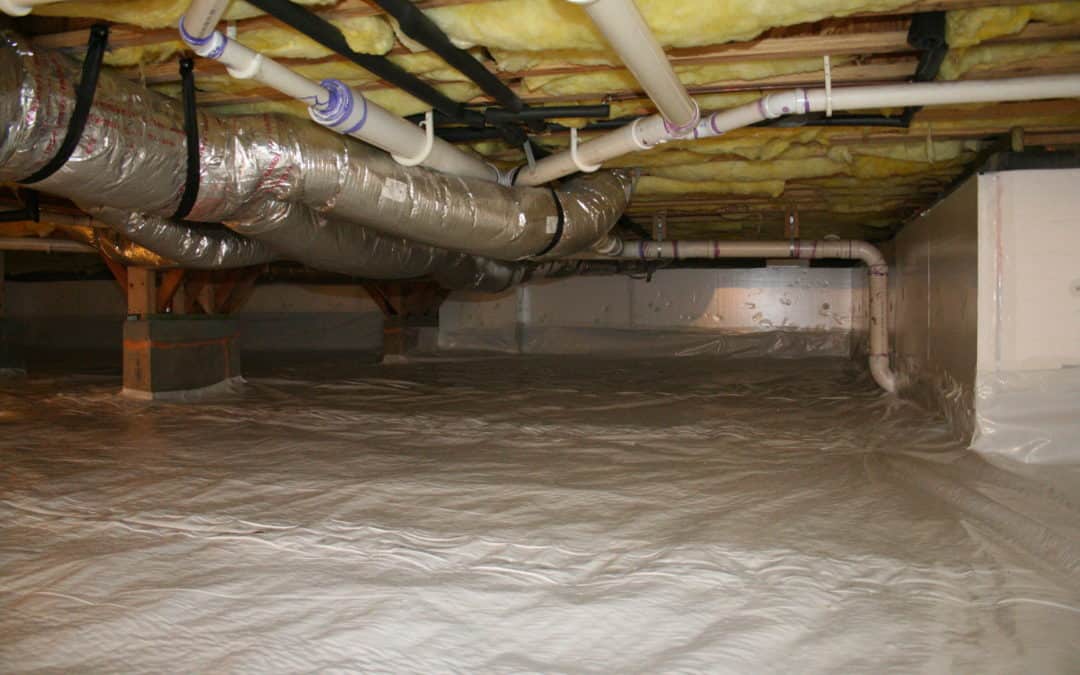Crawlspaces are typically used for storage and easy access to plumbing. However, they can be a damp place that provides an ideal environment for mold, mildew, pests, and rust. Keeping your crawlspace dry is essential to improving the overall health of your home. Below are the essentials to crawlspace moisture barriers in your North Carolina home.
What’s a crawlspace?
A crawlspace is a variation of a basement where you can crawl around. The surface of a crawlspace is often just bare earth. They’re traditionally built for homes without a basement or for homes that aren’t built on a slab. Their purpose is to promote air circulation throughout the home and to allow easy access to plumbing, electrical, and other home maintenance needs
Where does crawlspace moisture come from?
Crawlspace moisture usually comes from one of three sources:
- Bulk water: Water can accumulate from plumbing leaks or blocked drains. The longer this water remains stagnant, the worse the moisture can get.
- Outdoor air coming through vents: The vents around crawlspaces provide ideal access for vapor from the outside air to come in, which increases your humidity levels.
- Moisture from the ground: Uncovered soil releases moisture into the air, which releases it into the crawlspace.
What are the benefits of crawlspace moisture control?
Controlling the moisture levels in your crawlspace provides you with several benefits. These benefits include:
- Avoiding negative health effects from mold and mildew
- Decreasing your heating and cooling bills
- Preventing insects
- Improving indoor air quality
What is a vapor barrier?
A crawlspace vapor barrier is a set of polyethylene sheets that are placed on the uncovered soil of your crawlspace to help prevent moisture from seeping through. This will help improve humidity levels in the crawlspace. Vapor barriers, also known as moisture barriers, are often used with dehumidifiers and/or crawlspace encapsulation.
Do you have an issue with moisture in your crawlspace? Contact a crawlspace company near you who can come out and inspect your crawlspace, identify any areas of concern, and recommend the best treatment plan for your situation.

